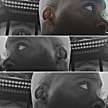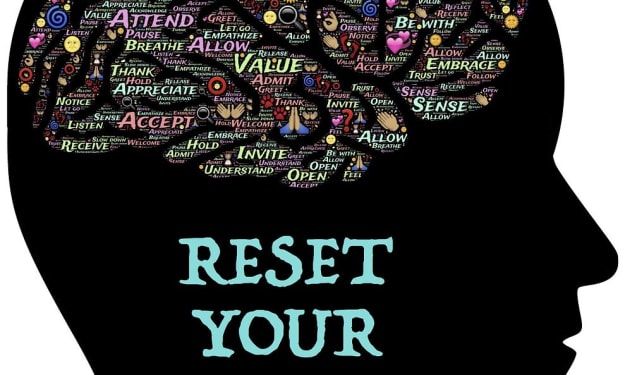It's All in Your Head
We are what we think we are.

I have never gotten a tattoo. It is just not me. I have nothing against tattoos, some look quite good, impressive works of art adorning arms, shoulders, backs, and legs. Some people look natural with ink, I just do not see myself as one of those people.
It’s the same with jewelry, I’ve have never worn jewelry beyond a timepiece. No rings, chains, earrings, or piercings. There is jewelry I like, even that I like the look of, only on other people. It’s just not me, not part of my identity.
I got to thinking about identity—how one sees oneself—the other day whilst watching a woman in the gym where I work. She is a regular gym user, spending upwards of an hour on the premises whenever I’ve seen her. She uses a variety of machines, both resistance and cardio and, from what I can see, does a good workout. She is fat.
I’ve worked in the gym for nearly two decades, so I’ve seen a lot of fat people and seen people of every size and body shape. I have witnessed people’s various approaches to fitness and their chosen fitness apparel: Conventional, unusual, and everything in between.
What is apparent is everyone has their own uniform, patterns, and their identity. The amount of people who drastically change from attending the gym is small. Sure, some put on muscle or lose a bit of weight, but for the most part, people remain pretty much the same.
Most people, and most adults, associate who they are with what they do. In conversation, people most commonly inquire about another’s profession after asking their name. Knowing what an individual does for a living gives one a sense of knowing them a bit: Their social status, their possible likes, and the sort of values they might have.
Of course, your conclusions could be wide of the mark. A person’s profession, unless they are lucky enough for it to be their passion as well, is sort of their public facade. It is the same with one's physical appearance. Anyone seeing the girl from the gym (the fat one) would, wrongly, assume that she is not a regular gym user.
People stay the same because they see themselves in a certain way. You may have heard it before, may even know it, but knowing something and understanding it are different things.
It is not something that you would necessarily think about consciously. Everyone just assumes that if they want to lose weight or get healthier, they just do it. They eat less, do more exercise; how hard can it be?
It is not hard in actuality. The information is out there. You can find out what to eat and when to eat it. You can seek out the exercises to do and how to do them, or even employ someone to show you what to do, how to do it, and how often. So why do so many fail at changing?
We all have a standard that we expect and set for ourselves. It may not necessarily be a conscious one, but it is definitely there. We all know people who, regardless of the circumstances, are perennially tardy or always early.
We all know people whose sartorial choices impress on a consistent basis, or those who dress as though their clothes were stolen and they had to go to the local Oxfam and beg for the cast-offs. That is just who they are and what you expect of them. It's also what they expect in themselves.
It cannot be underestimated how much one’s self-image impacts how your life is. When you look in the mirror, you expect to recognise the person who looks back at you, whether you are fat, slim, bald, hairy, or toothless. What you want—to lose weight, to gain weight, to have longer hair or smoother skin—is exactly that, a want.
People meet their own, intrinsic, expectations. That is true of everyone. To change your life, you have to change what you expect—not only from yourself, but also what you expect for yourself.
It is a very difficult thing to achieve, especially as your present reality might tell you something different. If you see yourself as a fat person, losing weight is difficult, just as is putting on weight if you have always been thin.
As much as this article refers to weight loss and changing one’s appearance, it is not just how you see yourself that is affected by your self-image. It is also how you believe you should be—how you should act or believe you're allowed to act—that affects your self-worth and how your life goes.
In essence, changing one’s life is easy; it is a decision made in a second. It is the belief that the life, or body, you want is for you that is the difficult part to convince yourself. Do that and your life will change.
About the Creator
Q-ell Betton
I write stuff. A lot.






Comments
There are no comments for this story
Be the first to respond and start the conversation.